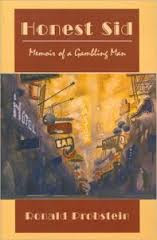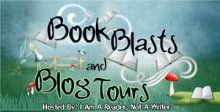One of the favorite things for commercial creators these days is to portray writers in coffee houses tapping away at their tablet or dumb-phone creating the great American novel or some such thing. Personally I don't know any serious typist, writer or otherwise, who would even remotely consider typing on either a tablet or dumb-phone. I mean that is like beating your fingers against concrete. “Touch” typing, despite the name, has nothing to do with how solidly one hits the keys. Those of us who type fast or learned on manual typewriters (okay, I understand kids today have no idea what a manual typewriter is) have some force in our fingers. I've been known to cook a cheap keyboard in under six months. I know of others who gladly pay north of $100 for a mechanical wired keyboard because their fingers go numb using a soft membrane keyboard.
What
is perhaps the biggest falsehood of the commercials is that writers
drink coffee. I've never met one. I come from the IT side of life so I
drink Mt. Dew or iced tea. Coffee in all its forms is just plain nasty.
I won't even mention what people's breath smells like after they take a
swallow. I can't imagine having to breath the air in a coffee shop for
hours on end. I'd rather take my chances with the visible air in
Beijing. We will not mention what a growing number of people consider
coffee the beverage of, but it is a category nobody wants to join.
The
real life thing which is most offensive is being forced to purchase
tea, especially iced tea, from a place which also sells coffee. Most of
the people who work there seem to be coffee, or as it was so eloquently
called in that wonderful television series Sanctuary, “brown mud”,
drinkers. When told they have to brew a container of iced tea they will
simply dump out the coffee grounds, toss in some tea bags, and use the
same brewer to brew the liquid they sell as tea. It isn't tea. It is
tea flavored coffee and it is disgusting!
What
brings this post to mind is car shopping yesterday. I was at one of
those “immerse the customer” dealerships yesterday. They seem to be the
new trend in car dealerships. A small food court, play room for the
kids, comfy chairs with multiple televisions, etc. All designed to get
the customer in the habit of spending time in the dealership. I looked
around while waiting and noticed quite a few writers typing away on
netbooks and notebooks, nobody was typing on a tablet. Since this was a
dealership in the Portland area I imagine the ratio of writers to
regular Joes and Janes was a bit higher than many other cities due to
the large creative arts community.
Since
I was there to empty my pockets on a new ride I left the trusty netbook
behind. Caffeine addictions must be fed, however, even if one isn't
busy typing. I took a chance. I walked up to a food counter and
ordered a glass of iced tea. It was with some trepidation that I took
my first sip. I was pleasantly surprised and informed the old guy
behind the counter. I didn't call him an old guy to his face of
course. If he reads this and tells me to look in the mirror I will take
no offense. His response was an even greater surprise. “No, we don't
brew tea in anything that's been near coffee because what comes out
isn't tea.” It shouldn't come as a shock I bought my car there.

“John
Smith: Last Known Survivor of the Microsoft Wars” is one big interview.
It is a transcript of a dialogue between “John Smith” (who, as the
title of the book implies is the last known survivor of the Microsoft
wars) and the interviewer for a prominent news organization.
Genre – Dystopian Fiction
Rating – PG
More details about the author
Website http://johnsmith-book.com/
















